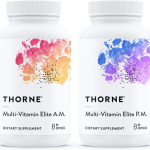How to choose an excellent serum for black skin
Impact-Site-Verification: 8a572145-462e-4772-8a2e-779f77d4b4dc
The right skincare products can be life-changing for anyone with black skin. A serum for black skin is one daily product that will elevate your skincare game. This post will guide you through the characteristics to look for in a serum, common serum mistakes, and how to make serum a part of your everyday routine! Let’s dive in!

Understanding Black Skin
There are characteristics associated with dark skin that can affect its needs. It typically has more melanin, which gives you a certain level of natural sun protection, but it can also cause issues like hyperpigmentation. This condition occurs when dark spots appear on the surface of the skin, causing discoloration. Other common issues include dryness, increased sensitivity, and a greater susceptibility to keloids or scar formation.” Understanding these characteristics is key to choosing the right serum. An effective serum targets a specific concern and helps enhance the overall appearance of your skin.
What is a Serum?
A serum is a highly concentrated, lightweight skincare product designed to penetrate the skin and deliver powerful active ingredients. Unlike traditional moisturizers, which primarily work on the skin’s surface to provide hydration and protection, serums are formulated to sink deeper into the skin. This allows them to target specific skin concerns more effectively, making them an excellent addition to any skincare routine.
One of the key benefits of serums is their ability to address particular skin issues with potent ingredients known as actives. These actives can help improve various conditions, such as dullness, dryness, acne, and aging signs. For instance, if you struggle with dark spots, hyperpigmentation, or an uneven skin tone, incorporating a vitamin C serum into your routine can be highly beneficial. Vitamin C is known for its brightening properties and its ability to fade discoloration, leaving your skin looking more radiant and even-toned over time.
Similarly, if you have dry skin, using a serum enriched with hyaluronic acid can be a game changer. Hyaluronic acid is a powerful moisturizer that attracts and retains moisture, providing intense hydration to the skin. By doing so, it helps plump up the skin, reduce the appearance of fine lines, and maintain a smooth, supple complexion.
With their lightweight texture and concentrated formulations, serums are an effective way to boost your skincare routine and address specific concerns. Whether you need hydration, brightening, or anti-aging benefits, choosing the right serum can make a significant difference in achieving healthy, glowing skin.
Key Ingredients to Look For: Familiarize yourself with which ingredients you should never choose when choosing a serum for dark skin.
Below are the most potent actives to revitalize your skin’s health:
Vitamin C
Vitamin C is one such; it brightens your skin and can help fade dark spots. It works by inhibiting melanin formation; therefore, especially for hyperpigmentation patients, it may be helpful. Look for serums containing ascorbic acid, a stable vitamin C formula.
Example: SkinCeuticals C E Feruliserum is known to brighten skin and tackle signs of aging.
Hyaluronic Acid
It is a moisture magnet that can absorb more than 1,000 times its weight in water. Hyaluronic acid also regulates hydration in black skin, which can sometimes be dry, creating a plump and youthful appearance.
Niacinamide
Another wonderful ingredient for black skin is Niacinamide or Vitamin B3. It also regulates oil production, refines skin texture, and can reduce redness. Its versatility also makes it effective across skin types and pigmentation types. An inexpensive product that has had a loyal following over the years and claims to be effective is The Ordinary Niacinamide 10% + Zinc 1%(serum).
Retinoids
Retinoids, a derivative of Vitamin A, are widely known for their ability to boost cellular turnover, which is well known for their efficacy in reducing dark spots and improving skin texture. But they can be potent, so taking it slow and looking for irritation is best. For instance, TheRoC Retinol Correxion Deep Wrinkle Night Cream checks off many of the criteria above, combining retinol with moisturizing ingredients to minimize irritation.
Natural Oils
Some other oils that heal and make black skin seem moist and nourished are jojoba oil, argan oil, and rosehip oil. These will help balance oil production and help your skin produce the all-important fatty acid needed for skin barrier function. Example: The Ordinary 100% Organic Cold-Pressed Rose Hip Seed Oil is a great choice to bring moisture without clogging your pores.
Common Ingredients to Avoid
It has many beneficial ingredients, but some can be harmful to black skin. Here are a few to watch for:
Alcohol: All this snow beach ingredient has is a high concentration rate that can dehydrate your skin or possibly aggravate it, allowing for even worse skin damage.
Fragrance:
These synthetic fragrances can be allergenic/irritating, especially if you have sensitive skin types.
Harsh Exfoliants:
They contain high concentrations of exfoliating agents – which disrupt your natural skin barrier and damage your skin’s defense system.
Identifying Your Skin Type
Before choosing a serum, you need to know your skin type. Understanding your skin will help you pick a serum that works best for you. Here’s a simple guide to know :
Oily Skin: If your skin looks shiny and has large pores, you likely have oily skin. Choose a lightweight, gel-based serum that controls oil without clogging your pores. Look for ingredients like niacinamide or salicylic acid to help reduce shine and breakouts.
Dry Skin: If your skin feels tight, rough, or flaky, it is dry. You need a serum that adds moisture. Look for ingredients like hyaluronic acid, glycerin, or natural oils to keep your skin soft and hydrated.
Combination Skin: If your skin is oily in some areas (like the forehead and nose) but dry in others (like the cheeks), you have combination skin. A balancing serum with niacinamide or aloe vera can help control oil while keeping dry areas hydrated.
Sensitive Skin: If your skin gets red, itchy, or irritated easily, it is sensitive. Choose a gentle serum with ingredients like aloe vera, chamomile, or centella asiatica. Avoid products with alcohol, strong fragrances, or harsh chemicals.
Educate Yourself:
Before buying a product, it’s a good idea to learn more about it. Reading reviews and checking different opinions can help you decide if it’s right for you.
Try a Small Size First
If you’re not sure about a product, start with a small or travel-size version. This way, you can test it without spending too much money. If it works well for you, then you can buy a bigger size.
Do a Patch Test
Before using a new serum, always do a patch test to check for allergies or irritation. Apply a small amount to a hidden spot, like behind your ear or on your wrist. Wait 24 hours to see if your skin reacts. If there’s no redness or itching, it’s safe to use.
How to Use a Serum: Step-by-Step
Cleanse Your Skin – First wash your face with a gentle cleanser for remove dirt, oil, and makeup.
Tone Your Skin (Optional) – If you use toner, apply it after cleansing to help your skin absorb the serum better.
Apply Serum – Take a small amount (about the size of a pea) and gently press it into your skin. Focus on areas with dark spots, dryness, or other skin concerns.
Moisturize – After applying the serum, use a moisturizer to lock in hydration and keep your skin soft.
Use Sunscreen (Morning Routine Only) – If you’re applying serum in the morning, always finish with sunscreen to protect your skin from UV damage.
Moisturizer:
Use a moisturizer for hydration, providing a protective barrier to your skin.
Sunscreen (morning routine): If you use a serum in the morning, always make sure you apply sunscreen on top of it, as it protects the skin from UV damage.
Conclusion
The right serum can do wonders for your routine and help address concerns like hyperpigmentation, dryness, and uneven skin tone, so we searched for the best serums for dark skin possible. With the right products and a better understanding of your skin’s unique needs as a dark-skinned person, your complexion can soon be radiant and healthy! Skincare is individual, and what works for one person may not necessarily work for another. Take the time to find the right serum for your skin, and consult a skin care professional if necessary.




